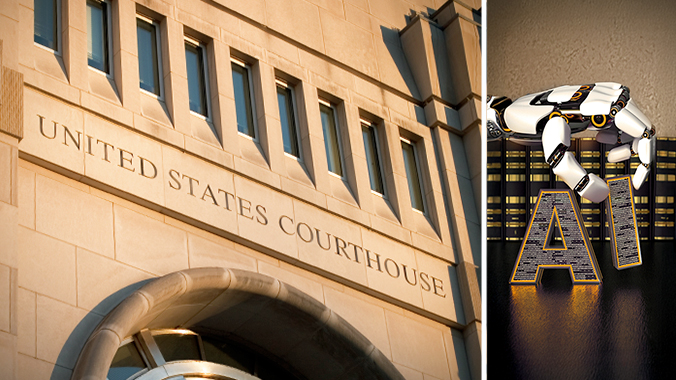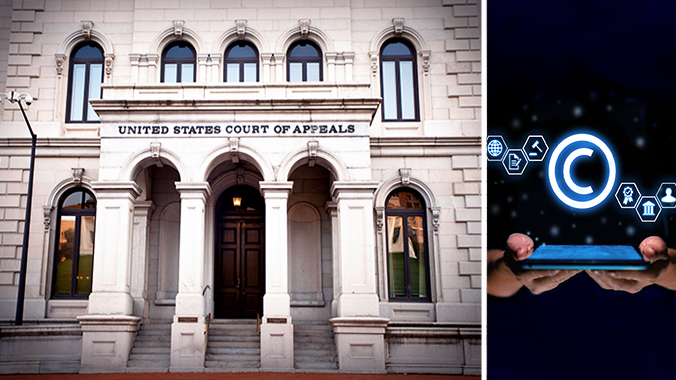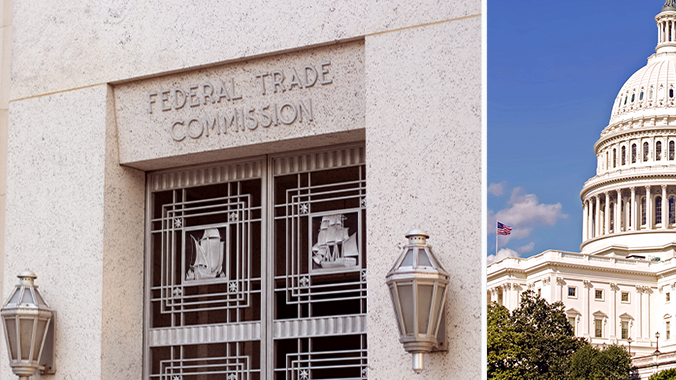Attorney’s Guide to Grantor Trusts: Includes Ethics

David has specialized in estate and trust disputes including will contests, mental competency issues, undue influence, trust modification/clarification, breach of fiduciary duty and related claims, and accountings. David is a unique lawyer in that he has extensive trial and appellate experience, which has resulted in his achieving board certifications in civil trial law, civil appellate, and personal injury trial law by the Texas Board of Legal Specialization.

Brian has spent his career solving complex financial challenges. He is compassionate while maintaining a process oriented methodology. His breadth of experience across roles and industries provides clients a 360 degree view of situations, often providing unique but simple solutions while also able to engage in the most complex financial situations. He also has experience as an entrepreneur at a regional technology firm, growing it to over $40 million in sales and managing more than 30 employees.
3 hour CLE
Tuition: $245.00
Get this course, plus over 1,000+ of live webinars.
Learn More
Training 5 or more people?
Sign-up for a law firm subscription plan and each attorney in the firm receives free access to all CLE Programs
Program Summary
Session I – Grantor Trusts: A Primer – Brian M. Seelinger
This session will provide basic information for those new to working with grantor trusts including recognizing such trusts, some use cases for specific situations, relevant references for further reading and research, potential issues, and drafting tips. Upon conclusion of the session the goal is for non-estate attorneys to have a functional knowledge of grantor trusts and be able to communicate basic concepts to both clients and efficiently collaborate with estate attorneys drafting such trusts.
Key topics to be discussed:
- Synopsis of grantor trusts
- Use cases for grantor trusts
- Potential issues for the unwary
- Drafting tips
Session II – Ethics in Estate Planning, Probate, and Trust Administration – David Johnson
Estate planning, probate, and trust administration are a complex field of law involving high stakes decisions that affect individuals and families. Factors such as unforeseen life changes, the involvement of multiple jurisdictions, and vulnerable clients pose unique ethical challenges for trusts and estates counsel and litigators. When it comes to estate planning and probate, a variety of factors can raise ethical issues such as joint representation, confidentiality and privilege, the competence of clients, attorneys acting as fiduciaries, and conflicts of interest. Counsel must balance zealous representation with his or her ethical obligations. This session will address those issues.
Key topics to be discussed:
- Determining who the client is
- Joint representation
- Client communications and confidentiality issues: ABA Model Rule 1.6
- Conflicts of interest: ABA Model Rule 1.7
- Diminished capacity and competency: ABA Model Rule 1.14
- Attorneys acting in other fiduciary capacities
![]() Closed-captioning available
Closed-captioning available
Speakers
 David F. Johnson | Winstead P.C
David F. Johnson | Winstead P.C
Through his trial and appellate experience, David aggressively strives to obtain the absolute best results possible for his clients. David maintains an active trial and appellate practice. David has consistently worked on fiduciary litigation matters as both lead trial and appellate counsel throughout his career. David has specialized in estate and trust disputes including will contests, mental competency issues, undue influence, trust modification/clarification, breach of fiduciary duty and related claims, and accountings.
David is the primary author of the Texas Fiduciary Litigator blog, which reports on legal cases and issues impacting the fiduciary field in Texas.
David is a unique lawyer in that he has extensive trial and appellate experience, which has resulted in his achieving board certifications in civil trial law, civil appellate, and personal injury trial law by the Texas Board of Legal Specialization. Out of approximately 84,000 licensed attorneys in Texas, David is one of less than twenty attorneys with this particular triple certification in civil appellate, civil trial and personal injury trial law. David is also a member of the Civil Trial Law Commission of the Texas Board of Legal Specialization. This commission writes and grades the exam for new applicants for civil trial law certification.
David previously taught Appellate Advocacy at Texas Wesleyan University School of Law located in Fort Worth. David is licensed and has practiced in the U.S. Supreme Court; the Fifth, Seventh, and Eleventh Federal Circuits; the Federal District Courts for the Northern, Eastern, and Western Districts of Texas; the Texas Supreme Court and various Texas intermediate appellate courts. Although David is based in Fort Worth (Tarrant County, Texas), he has a state-wide and national appellate practice.
David also served as an adjunct professor at Baylor University Law School, where he taught products liability and portions of health law. He has authored many legal articles and spoken at numerous legal education courses on both trial and appellate issues. His articles have been cited as authority by the Texas Supreme Court (twice) and the Texas Courts of Appeals located in Waco, Texarkana, Beaumont, Tyler and Houston (Fourteenth District), and a federal district court in Pennsylvania. David’s articles also have been cited by McDonald and Carlson in their Texas Civil Practice treatise, William v. Dorsaneo in the Texas Litigation Guide, and various authors in the Baylor Law Review, St. Mary’s Law Journal, South Texas Law Review and Tennessee Law Review.
 Brian M. Seelinger | Knox McLaughlin Gornall & Sennett, P.C
Brian M. Seelinger | Knox McLaughlin Gornall & Sennett, P.C
Brian has spent his career solving complex financial challenges. He is compassionate while maintaining a process oriented methodology. Examining a situation from multiple angles while being able to communicate across business roles is one of his strengths. His breadth of experience across roles and industries provides clients a 360 degree view of situations, often providing unique but simple solutions while also able to engage in the most complex financial situations.
Brian was most recently a Senior Portfolio Manager and Vice President in the Trust Department of a publicly traded multistate bank. While there he worked with institutional and personal clients, including municipal governments, pensions, non-profits, guardianships, foundations, endowments, authorities, trusts, small businesses, and high‑net worth clients. Beyond investment management he also performed a variety of fiduciary and compliance tasks regarding ERISA, mutual fund selection, financial modeling, risk management, financial projections, and tax planning.
He also has experience as an entrepreneur at a regional technology firm, growing it to over $40 million in sales and managing more than 30 employees. He has negotiated more than $200 million in contracts, and has lead multi-year projects involving technical, finance, accounting, and operating staff as the liaison able to speak the “language” of each area. Brian knows the stress of running a growing business and making a payroll.
Agenda
Session I – Grantor Trusts: A Primer | 1:00pm – 3:10pm
- Synopsis of grantor trusts
- History of grantor trusts
- The code sections
- Enabling provisions
- Tax rates
- Grantor trust triggers
- Reversionary interest
- Control of beneficial enjoyment
- Administrative powers
- Revocation powers
- Income for the benefit of grantor
- Use cases for grantor trusts
- Avoid probate
- Medicaid planning
- Leveraged gifting
- Business succession
Break | 2:00pm – 2:10pm
- Potential issues for the unwary
- Grantor definition
- Spousal provision
- Subservient provision
- Adverse party
- Reporting income
- Traditional method (1041 attachment)
- Disregarded entity (SSN reporting)
- 1099/1096 reporting
- Grantor definition
- Drafting tips
- Synopsis
- Estate tax
- Income tax
- Keeping the trust sustainable
Break | 3:10pm – 3:20pm
Session II – Ethics in Estate Planning, Probate, and Trust Administration | 3:20pm – 4:20pm
- Determining who the client is
- Joint representation
- Client communications and confidentiality issues: ABA Model Rule 1.6
- Conflicts of interest: ABA Model Rule 1.7
- Diminished capacity and competency: ABA Model Rule 1.14
- Attorneys acting in other fiduciary capacities
Credits
Alaska
Approved for CLE Credits
2 General, 1 Ethics
Alabama
Approved for Self-Study Credits
2 General, 1 Ethics
Arkansas
Approved for CLE Credits
2 General, 1 Ethics
Arizona
Approved for CLE Credits
2 General, 1 Professional Responsibility/Ethics
California
Approved for CLE Credits
2 General, 1 Ethics
Colorado
2 General, 1 Ethics / Professionalism
Connecticut
Approved for CLE Credits
2 General, 1 Ethics / Professionalism
District of Columbia
No MCLE Required
3 CLE Hour(s)
Delaware
Pending CLE Approval
2 General, 1 Enhanced Ethics
Florida
Approved via Attorney Submission
2.5 General Hours, 1 Ethics Hours
Georgia
Pending CLE Approval
2 General, 1 Ethics
Hawaii
Approved for CLE Credits
2.4 General, 1.2 Ethics or Professional Responsibility Education
Iowa
Pending CLE Approval
2 General, 1 Ethics
Idaho
Pending CLE Approval
2 General, 1 Ethics / Professionalism
Illinois
Approved for Self-Study Credits
2 General, 1 Ethics, Civility, Professionalism
Indiana
Pending CLE Approval
2 General, 1 Ethics
Kansas
Pending CLE Approval
2 Substantive, 1 Ethics / Professionalism
Kentucky
Pending CLE Approval
2 General, 1 Ethics
Louisiana
Pending CLE Approval
2 General, 1 Ethics
Massachusetts
No MCLE Required
3 CLE Hour(s)
Maryland
No MCLE Required
3 CLE Hour(s)
Maine
Pending CLE Approval
2 General, 1 Ethics / Professionalism
Michigan
No MCLE Required
3 CLE Hour(s)
Minnesota
Approved for Self-Study Credits
2 General, 1 Ethics
Missouri
Approved for Self-Study Credits
2.4 General, 1.2 Ethics
Mississippi
Pending CLE Approval
2 General, 1 Ethics
Montana
Pending CLE Approval
2 General, 1 Professional Fitness and Integrity
North Carolina
Pending CLE Approval
2 General, 1 Ethics
North Dakota
Approved for CLE Credits
2 General, 1 Ethics
Nebraska
Pending CLE Approval
2 General, 1 Professional Responsibility
New Hampshire
Approved for CLE Credits
120 General minutes, 60 Ethics / Professionalism minutes
New Jersey
Approved for CLE Credits
2.4 General, 1.2 Ethics / Professionalism
New Mexico
Approved for Self-Study Credits
2 General, 1 Ethics / Professionalism
Nevada
Approved for Self-Study Credits
2 General, 1 Ethics / Professionalism
New York
Approved for CLE Credits
2.4 General, 1.2 Ethics / Professionalism
Ohio
Approved for Self-Study Credits
2 General, 1 Professional Conduct
Oklahoma
Pending CLE Approval
2.5 General, 1 Ethics / Professionalism
Oregon
Pending CLE Approval
2 General, 1 Ethics
Pennsylvania
Approved for Self-Study Credits
2 General, 1 Ethics / Professionalism
Rhode Island
Pending CLE Approval
2.5 General, 1 Ethics / Professionalism
South Carolina
Pending CLE Approval
2 General, 1 Ethics / Professionalism
South Dakota
No MCLE Required
3 CLE Hour(s)
Tennessee
Approved for Self-Study Credits
2 General, 1 Dual
Texas
Approved for CLE Credits
2 General, 1 Ethics / Professionalism
Utah
Pending CLE Approval
2 General, 1 Ethics / Professionalism
Virginia
Not Eligible
2 General Hours, 1 Ethics / Professionalism Hours
Vermont
Approved for CLE Credits
2 General, 1 Ethics
Washington
Approved via Attorney Submission
2 Law & Legal Hours, 1 Ethics Hours
Wisconsin
Approved for Self-Study Credits
3.5 General
West Virginia
Pending CLE Approval
2.4 General, 1.2 Ethics / Professionalism
Wyoming
Approved for Self-Study Credits
2 General, 1 Ethics / Professionalism
#1 CLE Access Program
- Over 1,000 Live CLE Webinars each year
- All CLE webinars broadcasted in last 12 months
- Programs covering over 35 practice areas
- Hot topics & changes in the law
- All formats: Live, Replay, and On-demand
- Accreditation in every state
Access every CLE webinar,
every format, all year long!
myLawCLE All-Access Pass
only $395 yearly
Register Now
#1 CLE Access Program
- Over 1,000 Live CLE Webinars each year
- All CLE webinars broadcasted in last 12 months
- Programs covering over 35 practice areas
- Hot topics & changes in the law
- All formats: Live, Replay, and On-demand
- Accreditation in every state
Access every CLE webinar,
every format, all year long!
myLawCLE All-Access Pass
only $395 yearly
More CLE Webinars
Trending CLE Webinars






Upcoming CLE Webinars




























![5th Annual Tax Rep Summit [3-Day Event] (Presented by Tax Rep)](https://mylawcle.com/wp-content/uploads/2025/10/Product_img_-5th-Annual-Tax-Rep-Summit.jpg)






















